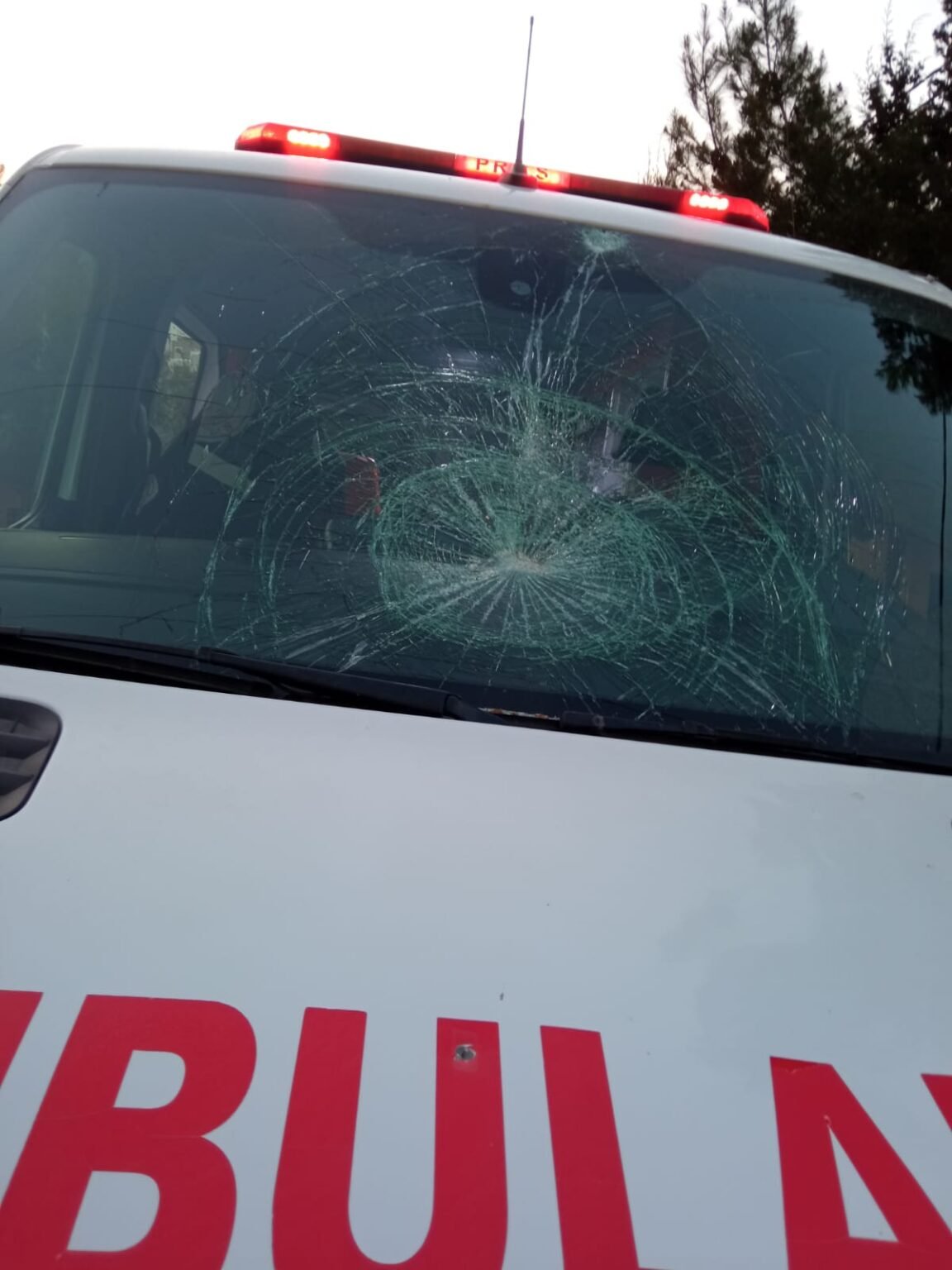there was a significant increase in attacks on health care in the West Bank, today said the World Health Organization (WHO) in its monthly Health Access Report in the occupied Palestinian territory.
Health attacks occurred in the context of major incursions by Israeli forces into Palestinian towns and refugee camps and a rise in violence carried out by Israeli settler groups, it said.
WHO verified 47 health attacks in the first two months of 2023, which included:
• 37 incidents involving obstruction to the delivery of health care, which included closures that happened during incursions on Jenin, Nablus and Hawara,
• 21 incidents involving acts of physical violence towards health care providers, which included exposure to targeting with live ammunition that prevented the provision of first aid and evacuation of injured persons who subsequently died,
• 3 incidents of militarized search of a vehicle.
There was injury to 24 health workers and targeting without injury of at least 12, with three health workers made to undergo strip search and four detained, it said, adding that 44 ambulances were affected, including 42 that were obstructed access to provide health care, six that were damaged, and a further three that were targeted without being damaged.
WHO said two-thirds (68%) of recorded attacks were in the district of Nablus, with other affected areas including Hebron, Jericho, Jenin, Bethlehem, and Jerusalem.
The increased attacks in February echo peaks in health attacks during April and October 2022, said the World Health Organization.
In its report, WHO included the testimony of Ahmad, a health worker who has been working for the Palestine Red Crescent Society (PRCS) for 26 years.
“On the 22nd of February during the military raid on Nablus, I was in one of the nine PRCS ambulances that were prevented from entering the Old City to evacuate people who had been severely injured. We were told that there was no coordination [with Israeli forces] for the ambulances to enter, so we decided to continue by foot at our own risk,” he said.
Ahmad added: “One of the teams went to treat a 2-year-old child who has a heart condition and was suffering from tear gas inhalation. After they reached the patient’s house, they were stuck for two hours inside before they could coordinate to transfer the child to hospital.
“A team of four paramedics had just left their ambulance vehicle to evacuate an injured person when they were directly targeted with rubber-coated bullets. The team managed to get the injured person to the ambulance without being directly hit.
“In other attacks on that day, an ambulance was targeted with rubber bullets and another was hit by an Israeli military vehicle causing damage to the body of the ambulance.”
Ahmad describes the difficulties with access and the impact of some of the health attacks in Nablus: “In normal circumstances, entering the Old City is difficult because of the narrow roads. Entering during a military incursion is even more difficult. The Palestine Red Crescent Society is currently in the final stages of bringing small, specialized vehicles (tracktorons) to make entry and transfer of patients easier.
“I am scared for the team. We try to protect ourselves as best we can. It’s so hard to see one of your team injured. Last year, during confrontations in Beita, one of our team was shot while he was in the ambulance. The ambulance was close to a cliff, it could easily have fallen. It was a very intense and difficult situation.
“When a vehicle is damaged it can go out of service for some time. We already have a shortage, especially with the growing needs and the increased number of injuries during the recent violence.
“PRCS has recently started provision of bulletproof vests, helmets, and tear gas masks to its teams, following incidents of direct targeting of health workers. The organization systematically monitors violations against its staff, ambulance and facilities and advocates for enhanced respect and protection of health care across the occupied Palestinian territory,” Ahmad concluded his testimony.
Source: Wafa



